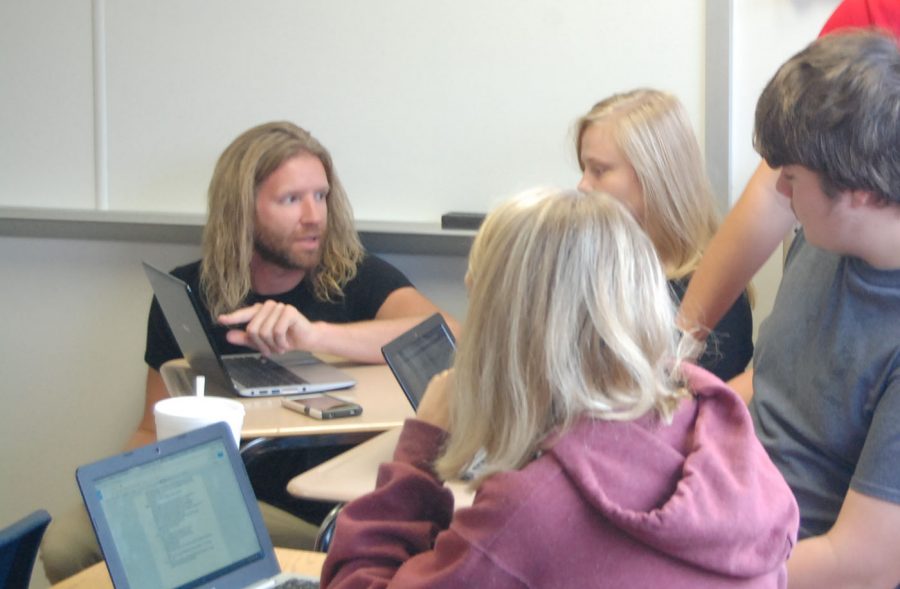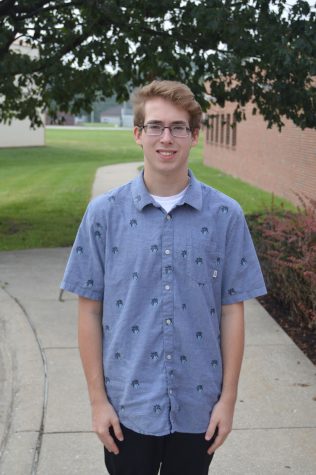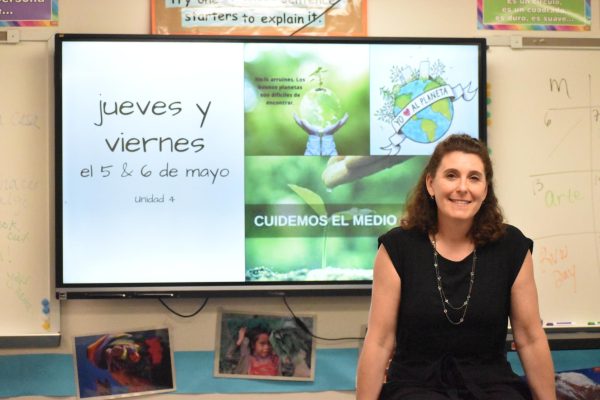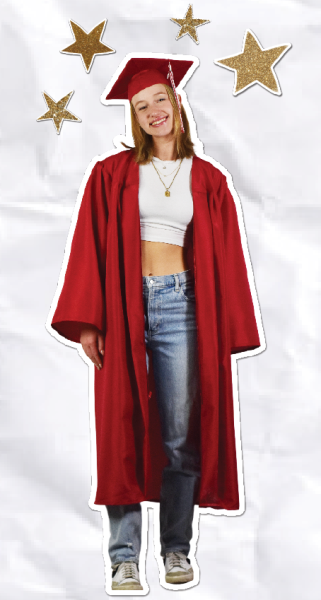One language, many possibilities
German class proves useful in more than just communication.
SHS teacher Christopher Sponsler aids students in a computer activity. He urges students to take a foreign language class, not just for communal purpose, but also to strengthen one’s knowledge.
September 21, 2016
Looking around in a German grocery store, SHS German teacher Chris Sponsler recognizes cultural differences between that of others and his own. His education through foreign language has opened his mind, giving him a better understanding of the world around him and the ability to pass these skills on to others.
Not only does Sponsler use the German language to speak, but also to better connect with students and the world on a greater, more educational scale. Teaching students about the German language and world helps him and his students have a better understanding of language and culture at home and abroad.
“Language is such a huge moving part of culture,” Sponsler said. “Gaining an awareness of different perspectives of how people do things differently is extremely important for students.”
As a teacher, Sponsler uses the German language throughout different parts of his life, whether it be speaking amongst friends or teaching one of his classes. He hopes others take a similar path as well, as he thinks learning a foreign language opens up many opportunities for students to expand their overall knowledge and skillset, whether or not they actually use the language for life.
“Every (student) should learn a foreign language,” Sponsler said. “Foreign languages engage so much more of your brain.”
At SHS, Sponsler teaches five different German classes ranging from levels one through five, including an Advanced Placement course. As students move through these classes, they go from memorizing words and constructing phrases in German to eventually being able to use those words to formulate their own thoughts on different topics of discussion.
Moving through the classes gradually becomes more demanding each year, as students continuously build upon their knowledge from previous years to create and support their answers to different questions in different environments, such as on the German language AP test. Knowledge from these courses is not only used to better understand German, but also to understand different ideas and develop positions concerning the culture.
“German Four AP is a lot more demanding cognitively,” Sponsler said. “You have to think a lot more about what’s going on.”
While students could take other languages such as Spanish, Sponsler believes that taking German sets students apart from others, as German is a language not many other students take. Senior Tiger Cheng agrees, saying he’s taking the class because it seemed more fun and interesting than the other languages offered.
“French and Spanish just seem too common for me,” Cheng said.
Cheng uses the language more in his free time by surfing the Internet and watching videos in German. With this experience, Cheng also better understands German culture as well.
“I can go on YouTube and look up videos in a different language and sort of understand what’s going on,” Cheng said. “I found that to be really cool.”
Sponsler also appreciates the cultural parts of Germany, as he still connects with his friends and former professors in the German language. From these sources, Sponsler says he is able to gain a different perspective on the world around him.
“In knowing German, it’s opened up a whole new group of people that I talk to that I get influenced by and also influence,” Sponsler said.
Whether or not students use the language they have been taught later in life, Sponsler still believes that cognitive skills gained in the class offered at SHS helps students to become better thinkers. He sees the benefits students gain from exhausting their brain’s full potential, making them become better learners for skills they encounter later in life.








